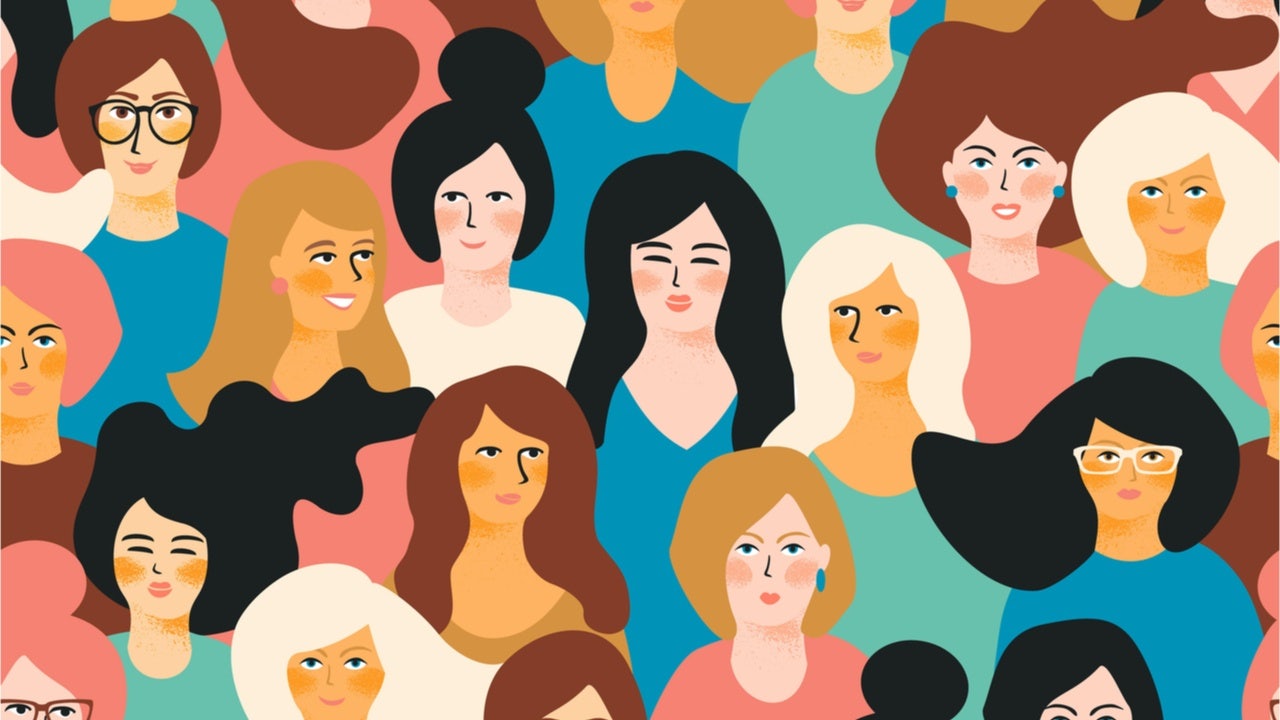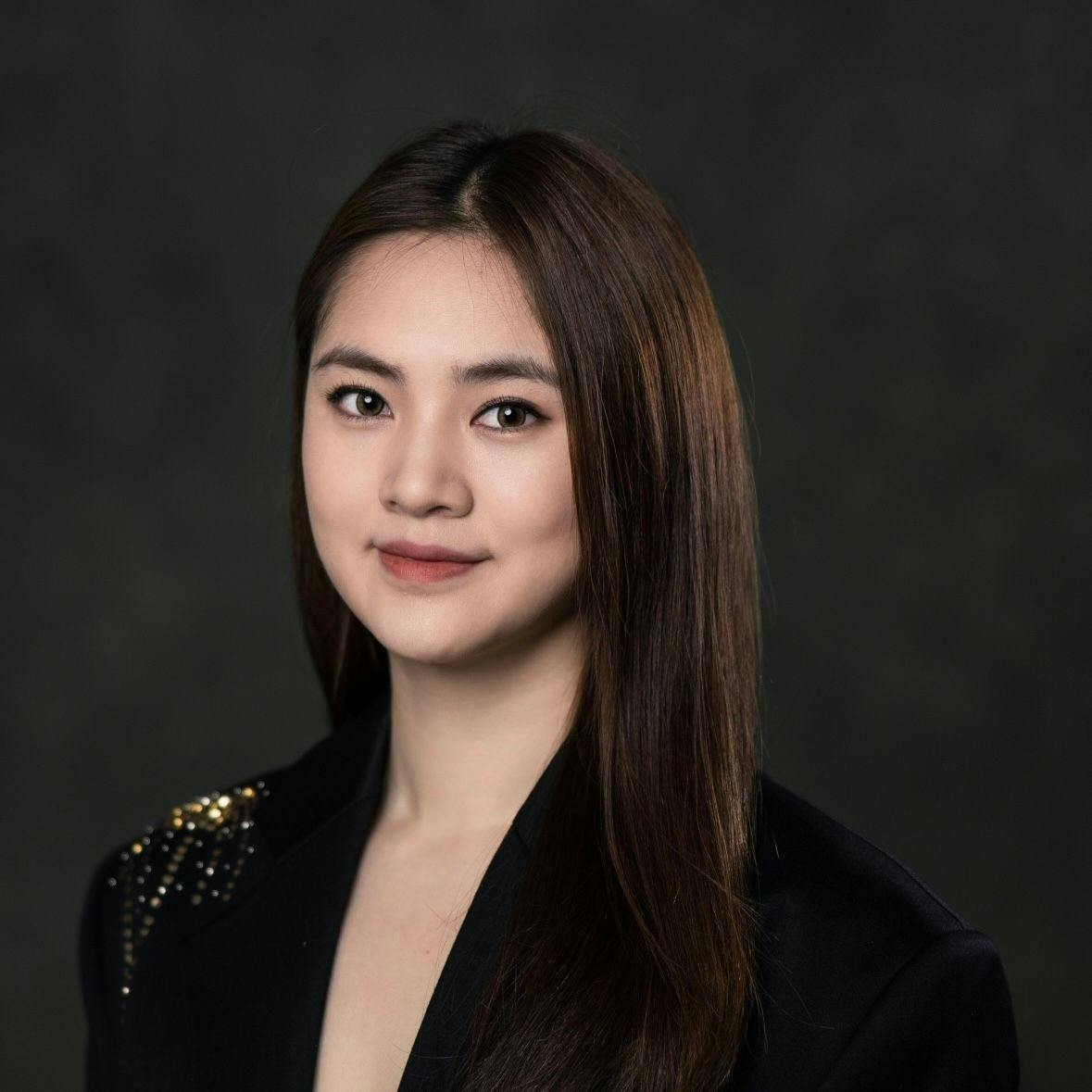Like other global and domestic celebrations, International Women’s Day, which fell on March 8 this year, has become a shopping carnival in China. Global luxury brands, however, have focused less on this occasion than on Valentine’s Day and Chinese Lunar New Year. Given that female consumers purchase more than 75 percent of the luxury items in China — the percentage would be even greater if gifts by men for women were included — brands are missing a critical occasion to reach this growing and desirable market.
As more and more Chinese females focus on self-empowerment and self-expression, campaigns and slogans that favor the male-gaze-oriented aesthetics are being called out by savvy Chinese netizens. Meanwhile, motivated by female medical workers who have been fighting the COVID-19 virus on the frontlines, the Chinese society is calling out for more respect and understanding for women. As such, brands should adjust their marketing campaigns to reflect this new awakening, learning from two recent marketing mistakes by Chanel and Estée Lauder.
The Chanel Chance perfume’s controversial slogan for this International Women’s Day translated from Coco Chanel’s renowned quote “A woman who does not wear perfume has no future” aroused wide disagreement among netizens, ranking high on Weibo’s “Hot Topic” list, while Estée Lauder, the best selling brand from last year’s Singles’ Day, is being accused of sexism due to content that involved the objectification of women, delivering unrespectful messages like “how can you attract guys’ attention and become the winner in life if your skin is aging and sagging.”
Netizens’ protests on these offensive ads, in line with a new gender movement initiated by Chinese millennial netizens on Weibo since February, urge brands’ attention on gender equality and women’s rights. For this International Women’s Day amid the COVID-19 epidemic, a few local and global brands have demonstrated creativity and inclusivity in their digital campaigns — not only offering exclusive online promotions, but also challenging the ingrained stereotypes and expectations on females. With this in mind, Jing Daily has rounded up five leading luxury players that neatly leveraged “womenomics” and precisely reached young Chinese female consumers on this International Women’s Day.
Net-A-Porter#
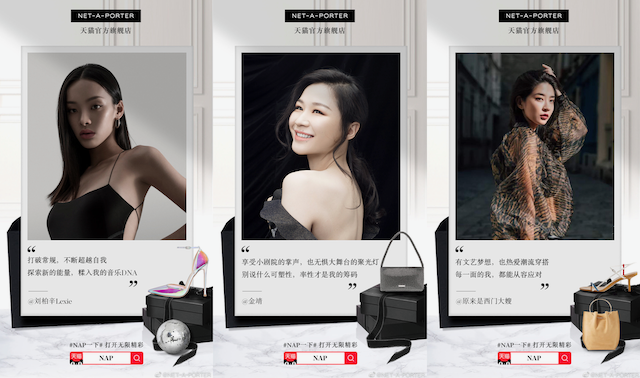
That the e-commerce giant Net-A-Porter joined Tmall last year is indicative of China’s vast luxury market. To engage its independent and growing female customer-base, the company cast three popular Chinese females: rapper Lexie Liu, comedian Jin Jing, and fashion influencer Ximeng Dasao (@原来是西门大嫂) to share their perspectives on being an diversified female in today’s China. With questions by Weibo users online, the three role models encouraged women’s self-expression and self-acknowledgement in both career paths and fashion styles.
NEIWAI#
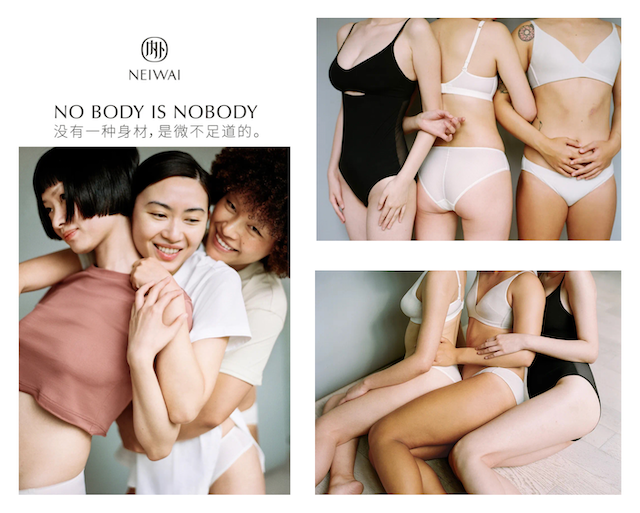
The homegrown lingerie label NEIWAI has been intent on changing how Chinese women feel about their bodies. This more body positive approach can be seen in their International Women’s Day documentary film, No Body is Nobody, casting six random women of different ages, body shapes, and occupations and sharing their intimate confessions on body shaming and diversity. Meanwhile, NEIWAI also announced that they would initiate more conversations on body diversity through a series of short videos, personal narratives, and professional psychological consulting service in the next six months. The campaign has been well-received by the young female consumers, seeing 125 thousand views on Weibo and 97.6 thousand views on WeChat. Read our in-depth analysis about why it works.
& Other Stories#
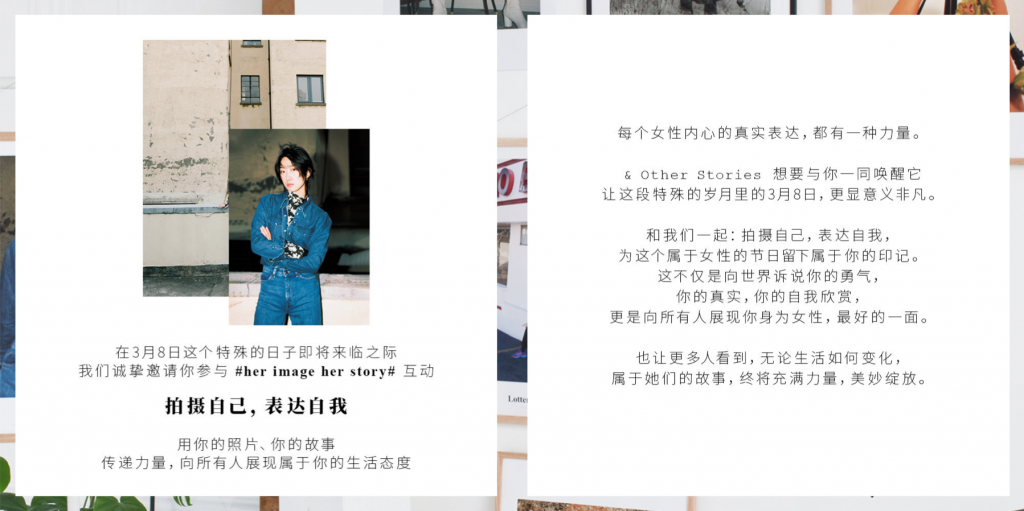
& Other Stories, under the fast fashion giant H&M Group, launched “Her Image, Her Story” campaign for this International Women’s Day. The brand invited nine female photographers, including the Chinese avant-garde photographer Wang Ziqian, to shoot self-portraits embodying personality and self-expression. Plus, social users were encouraged to share their own stories and photos under the campaign’s hashtag on Little Red Book and Weibo.
Chando#
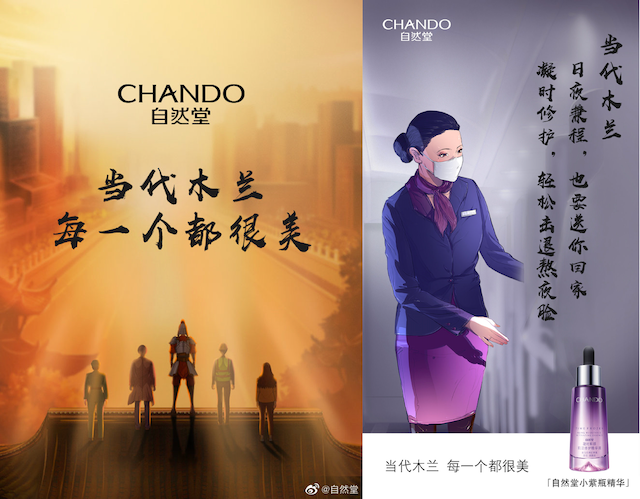
The Chinese beauty brand Chando celebrated International Women's Day by paying respect to female workers during the COVID-19 crisis. Along with launching the short animated film, Contemporary Mulan, which has been viewed on Weibo 7.4 million times, the brand also collected powerful female stories — medical professionals, community helpers, policewomen, volunteers, and more — who have displayed great loyalty by sticking to their posts during the COVID-19 crisis. By appropriating the metaphor of “Mulan,” a fearless young woman risking everything to protect her family and country in ancient China, Chando resonated with netizens successfully.
Tmall#
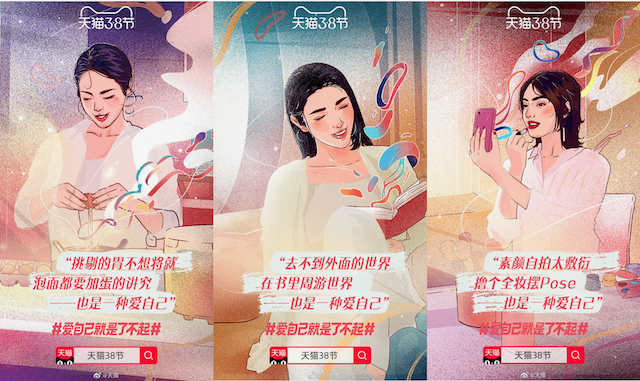
As one of the most successful B2C e-commerce sites in China, Tmall called for women’s self-care for this year’s International Women’s Day. The campaign “Own yourself, love yourself” invited females influencers, such as Lamu Yangzi (@辣目洋子) with 3.3 million followers, to express their understanding of self-love and engaged Weibo users to share personal experiences. The hashtag on Weibo has received 600 million views and 2.12 million discussions, with related posts from brands collaborating with Tmall like Lancôme and L'Oréal, as well as KOLs promoting products which are available on the site.
